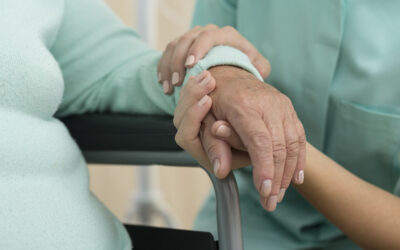Humanising medicine is not just a concept, but a practical action to improve healthcare by emphasising the individual needs of each patient. Contemporary healthcare faces the challenge of integrating modern technology and...
News
The role of the humanisation of medicine in the treatment of addiction
Addictions represent one of the greatest challenges of modern medicine, affecting the lives of millions of people around the world. Characterised not only by physical aspects, but also by profound psychological and social effects, the issue of addiction...
Humanising medicine and reducing medical errors
A patient-centred approach, based on empathy and understanding, has the potential to significantly reduce errors in healthcare, increasing the safety and efficiency of treatment. Medical errors With the increasing complexity of health systems, errors...
Can the humanisation of medicine affect doctors' satisfaction levels?
In the day-to-day practice of medicine, patients and their health always come first. However, the wellbeing of doctors, who play a key role in the delivery of healthcare, is also equally important. Satisfied, motivated and empathetic doctors not only have...
What changes can be made in the health care system to promote the humanisation of medicine?
Implementing changes that promote a humanistic approach not only improves the patient experience, but also contributes to the effectiveness of treatment and overall satisfaction with care. Looking at potential modifications to the health care system,...
Humanisation of medicine and administrative staff in medical facilities
In the world of medicine, where there is increasing talk of the humanisation of healthcare, not only doctors and nurses but also administrative staff in medical facilities play an important role. Their work, although often overshadowed by medical activities, is...
The role of pharmacists in promoting the humanisation of medicine.
In an era of increasing dominance of technology and procedures in medicine, it becomes important to recall the human dimension of healthcare. Pharmacists, who are often the first point of contact for many patients in the healthcare system, play a key role in...
Thrombotic Thrombocytopenic Purpura - one of the most mysterious medical diseases
In recent times, medicine has made incredible advances in the treatment of rare diseases and, thanks to the medical solutions introduced, many patients are able to lead almost normal lives. However, there are still conditions that remain an enigma of medicine and despite the...
The role of family and community in humanising medicine: Support and integration
The role of family and community in the context of healthcare is invaluable. It is the patient's loved ones and wider community that play a key role in humanising medicine. In this article, we discuss how family and community can support patients and...
The role of psychology in humanising medicine: Understanding and supporting patients
Medicine is not just about treating illness and injury. It is also a field that relies on human relationships and empathy. Modern medicine is increasingly emphasising the humanisation of healthcare, i.e. caring for patients not only as cases of...
Respect for patient autonomy: The right to choice and self-determination
Respect for patient autonomy underpins medical ethics and quality of healthcare. The patient, as the subject of treatment, has the right to make decisions about his or her health and treatment. The value of this autonomy is increasingly recognised in today's...
Caring for the chronically ill patient: How to provide support and dignity?
Patients with chronic illnesses often need long-term care and medical support. In such cases, it is crucial to ensure not only effective treatment, but also the dignity and quality of life of the patient. Understanding the needs of patients...
Integrative medicine: How can different forms of therapy work together for the benefit of the patient?
Integrative medicine is an approach to healthcare that combines different forms of therapies and medical approaches to improve a patient's health. This approach takes a holistic approach to health, treating the patient as a whole, taking into account their physical,...
How did the COVID-19 pandemic affect the process of humanising medicine?
The COVID-19 pandemic, which broke out in December 2019, has had a huge impact on our lives. With the spread of the SARS-CoV-2 virus, people around the world have been forced to adapt to a new reality. One area that has been affected and evolved ...
Humanising medicine in paediatrics: Supporting children and their families
Paediatrics is the branch of medicine that deals with the health and treatment of children. With advances in science and technology, paediatric medicine is also evolving, but it is not only science and technology that matter. Increasingly, attention is being paid to the aspect of...














